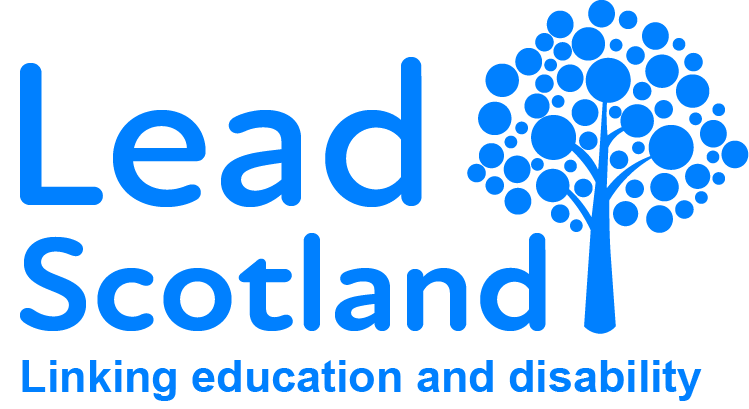
Adult Learning Survey
It’s Adult Learners week and Lead Scotland is asking all disabled adults, carers and supporters to complete this Scottish Government adult learning survey.
Who is able to access lifelong learning opportunities?
Who is being left behind and why?
Please do spread the word and have your say before the middle of January 2020. The Adult Learning Survey is designed to capture the views of all adult learners but the Scottish Government and the Adult Learning Strategic Forum for Scotland are especially interested in hearing from people who have faced barriers whilst trying to access and progress through learning. We are also very interested in hearing from adults who are uncertain about their learning journey.
Fair access to adult learning opportunities?
“There must be no let-up in the public focus on the disadvantage experienced by disabled students.” Sir Peter Scott, Commissioner for Fair Access, is talking about Higher Education retention, trends and outcomes but are his words just as relevant within a community-based context? How would we know? The results of the Adult Learning Survey will provide first-hand, current, and definitive evidence to help answer this question.
In mid-November the 1919 Centenary Commission will publish their 100-year state of the nation report about adult education in the UK. Watch this space to find out more when we read their findings. Sir Peter Scott also sits on this Commission.
Adult learning opportunities – unmet need
The availability of local adult learning opportunities stems from local community planning partnerships who provide strategic leadership and target local service provision in response to identified need. Local cross sector partnerships planning and evaluating together. In June 2019 Education Scotland undertook an analysis of the 2018-21 Community Learning and Development (CLD) plans from all 32 local authority areas.
Gaps in provision and support for young disabled people and adults, supporting the transition from children to adult services and people who are social isolated were recorded as unmet need within one or more plans. 14 plans give little detail and three plans didn’t record any unmet need, but it seems unlikely that there are no unmet needs within communities? Unmet need relies on people speaking up and we know that too many disabled young people and adults are not engaged in local decision-making processes.
Is it clear to disabled people in Scotland what support they are entitled to in a community learning context? Lead Scotland has a Post School Learning Choices Guide and a national disabled students helpline but many adult learners that we speak to are not aware of their right to learn before they contact us. Are services so inclusive now by default?
I feel that the Equality Act 2010 may have become the key driver of fair access to adult learning, as an unintended consequence of the Scottish Government focus on the poverty related attainment gap. The Government does have a policy imperative to halve the disability employment gap by 2038 but anecdotal evidence suggests that this ambition is not visibly feeding into the CLD plans and targeted service provision and it is not mentioned in the analysis. If the Equality Act is the key driver then we have work to do as analysis of the CLD plans found that “we could not find evidence of Equality Impact Assessments being referred to in any of the plans” which makes it difficult so see how the well the legal imperative is being executed.
At its best adult learning is absolutely transformative. People become engaged, build confidence and resilience, become empowered and emboldened, build skills and gain accreditation, progress and keep moving forward in life. Please share and sign the Adult Learning Survey. A full snapshot of learners’ voices from right across Scotland will provide the Scottish Government with evidence about how well adult learning provision is serving the people of Scotland and where the gaps are, to feed into the new Adult Learning Strategy for Scotland.
Emma Whitelock, CEO Lead Scotland
#AdultLearnersWeek #AdultLearningMatters

